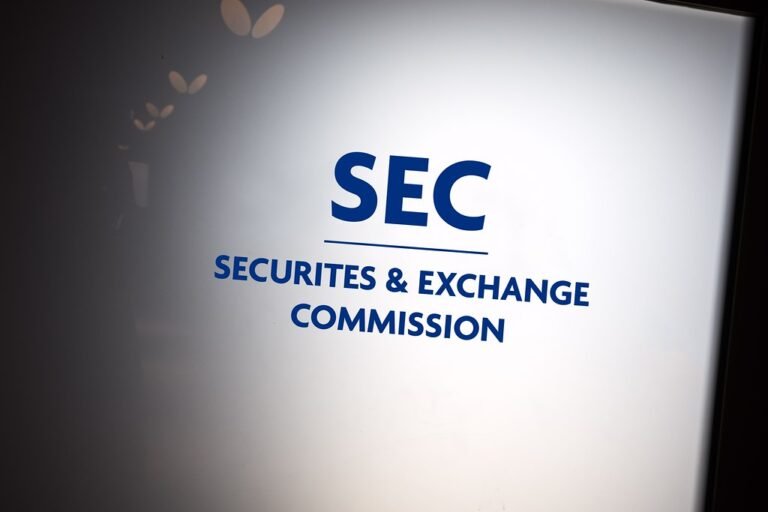
A coalition of 23 state attorneys general, are calling on the U.S. House of Representatives to vote against a resolution that seeks to overturn a key rule issued by the Consumer Financial Protection Bureau (CFPB) aimed at limiting excessive overdraft fees imposed by large banks.
In a letter sent to House leadership and members of the House Financial Services Committee, the coalition expressed strong opposition to House Joint Resolution 59, which would undo the 2024 CFPB rule. The rule specifically targets banks with over $10 billion in assets and sets reasonable limits on overdraft fees, which can often lead to financial hardship for consumers.
“Overturning this rule will only do one thing: help big banks profit at your expense,” said New York Attorney General James in the letter. “Accidentally overdrawing your checking account by a few dollars shouldn’t result in an outrageous fee. The CFPB took action to protect consumers from these excessive charges, and Congress should do the same. At a time when working families are struggling to make ends meet, our leaders should be protecting Americans’ wallets, not empowering big banks to charge junk fees.”
“Our entire economy is tanking right now thanks to Trump’s idiotic trade war. I’m not aware of anyone—aside from lobbyists for big banks—who thinks this is a good moment for new junk fees and excessive bank penalties for American families,” said Connecticut Attorney General William Tong.
The controversy centers around overdraft fees, which average around $35 and can often be much larger than the overdraft itself. In 2023, banks earned approximately $5.8 billion from overdraft fees, which are a significant source of revenue. However, the fees have drawn criticism for being exorbitant, with some fees far exceeding the overdraft amount. For example, a typical fee of $35 on an average overdraft of $26 translates to an annual interest rate of a staggering 16,000 percent.
The CFPB’s 2024 rule requires that overdraft fees be treated as interest on a loan, ensuring that banks impose limits on such charges. In the coalition’s letter, they emphasized that excessive fees have led to serious financial consequences for consumers, including damage to credit scores and even involuntary account closures. The rule, they argue, provides necessary protection for vulnerable consumers and prevents banks from exploiting their customers.
“Excessive overdraft fees are predatory, causing unnecessary burdens for consumers,” Michigan Attorney General Dana Nessel said. “This critical CFPB rule ensures that these fees are proportionate and transparent. Rejecting such a rule is just another attempt to undermine the vital work of the CFPB, which has always been in the corner of Michiganders, protecting them from deceptive fees, predatory loans, and shady financial schemes and putting money back in the pockets of hard-working families.”
“Vulnerable families cannot afford the burden of overdraft fees and resulting damage to their credit as they try to pay for necessities on top of additional debt they may have. That is why I am urging the House to vote against the overturning of CFPB’s 2024 rule limiting excessive overdraft fees,” Chicago – Attorney General Kwame Raoul said. “I will continue to protect consumers in Illinois and across the nation from excessive fees that benefit banks.”
It is further noted that many banks, such as Citigroup, Capital One, and Ally Bank, have already eliminated overdraft fees altogether while maintaining overdraft protection for their customers. This demonstrates that it is possible to provide overdraft protection without resorting to punitive fees that disproportionately affect those least able to afford them.
The push to block the rule comes after the Senate narrowly passed a resolution to overturn the CFPB’s policy, with a 52-48 vote. Remarkably, Republican Senator Josh Hawley joined Senate Democrats in voting against the resolution, highlighting bipartisan opposition to the rollback of consumer protections.
“Our entire economy is tanking right now thanks to Trump’s idiotic trade war. I’m not aware of anyone—aside from lobbyists for big banks—who thinks this is a good moment for new junk fees and excessive bank penalties for American families,” said Connecticut Attorney General Tong.
“High overdraft fees serve no purpose other than to help the wealthy get wealthier, while American families who are already struggling get poorer. Banks aren’t shy about how these fees pad their wallets: a big bank CEO named his yacht Overdraft,” said California Attorney General Rob Bonta. “President Trump has promised to make life for Americans affordable — allowing expensive overdraft fees would do the complete and total opposite. Americans are counting on their elected leaders to protect them. My fellow attorneys general and I urge the House, the last line of defense, to protect its constituents’ wallets by voting “no” on the Resolution and preserving the CFPB’s overdraft rule.”
“Banks should not be profiting from people’s misfortunes,” said Arizona Attorney General Mayes. “These fees often hit Arizonans at the worst possible time—when they’re already struggling to make ends meet. The CFPB’s rule is a critical safeguard to ensure that financial institutions treat their customers fairly and stop exploiting individual and families living paycheck to paycheck.”
The coalition of attorneys general, in addition to James, includes the leaders from Arizona, California, Colorado, Connecticut, Delaware, Hawaii, Illinois, Maine, Maryland, Massachusetts, Michigan, Minnesota, Nevada, New Jersey, New Mexico, North Carolina, Oregon, Rhode Island, Vermont, Washington, Wisconsin, and the District of Columbia. The Hawaii Office of Consumer Protection also joined the effort.
As the debate continues, the coalition remain firm in their stance: protecting consumers from excessive bank fees is essential to ensure that working families are not further burdened by financial penalties, especially as many already face economic challenges.



